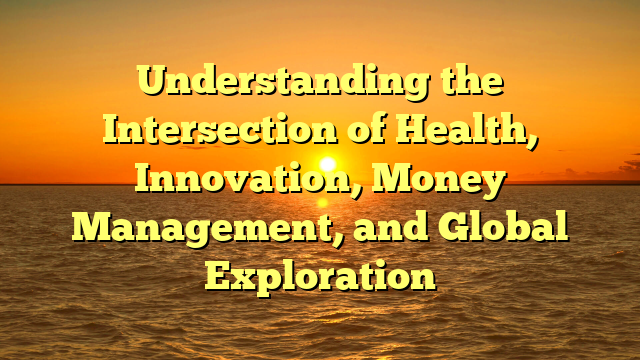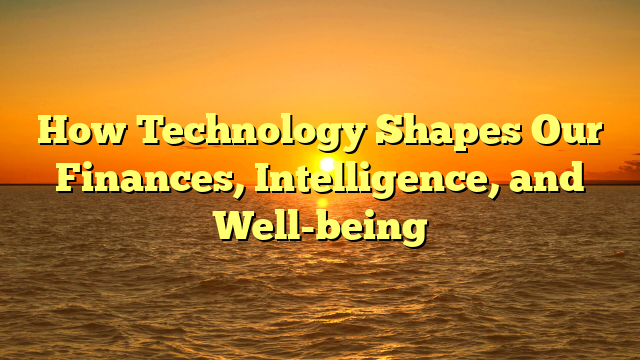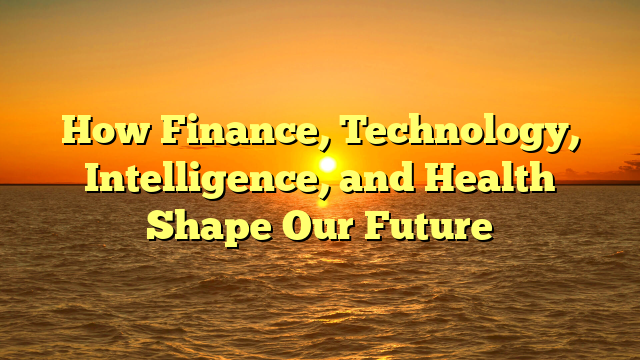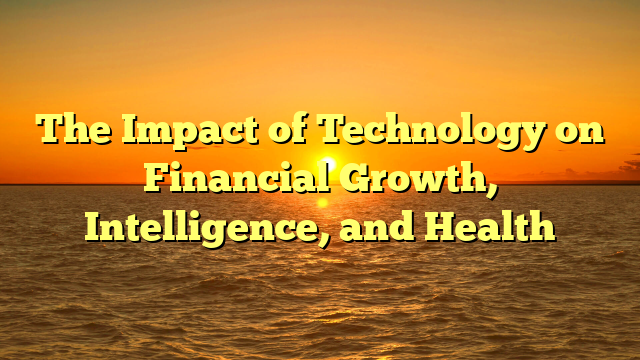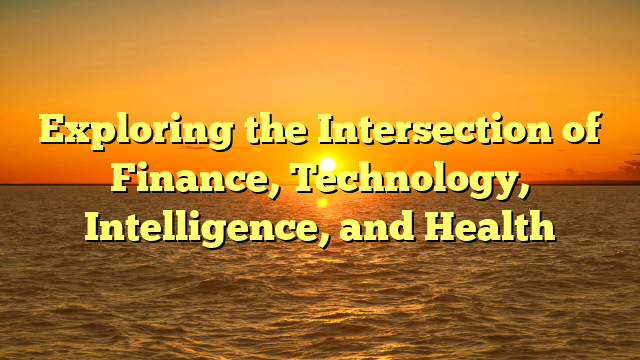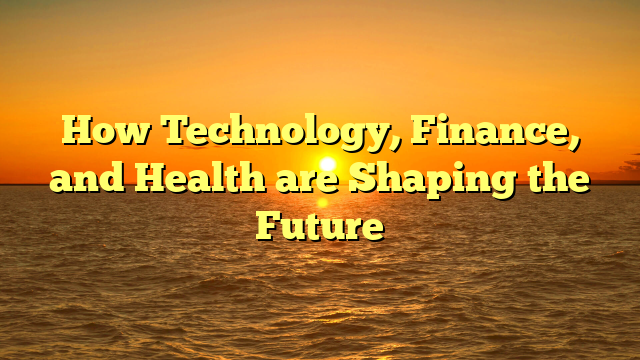
In the modern world, health, technology, intelligence, and finance are becoming more intertwined. The advances in each of these areas are revolutionizing the way we live, work, and interact with the world. These industries are not only evolving independently but are also offering unique challenges that may significantly affect individuals, organizations, and entire economies. In this article, we will explore the ways in which these fields are connected and how they are transforming our world.
—
Finance and Technology: The Digital Transformation
Finance has always been at the core of business activity, and over the years, technology has played an increasingly important role in shaping the industry. The rise of digital platforms has brought about a new era for investors, creating more efficient, secure, and accessible methods for managing money, investing, and trading.
For example, cryptocurrencies and blockchain technology have disrupted traditional financial systems. These innovations have made international transfers simpler while eliminating intermediaries, which improves transparency. Blockchain has also paved the way for smart contracts, which automate processes and increase trust in transactions.
Fintech companies are also providing new financial services through mobile applications, artificial intelligence (AI), and big data analytics. These platforms allow users to manage investments with greater accuracy. Furthermore, automated wealth management services are making it easier for individuals to invest wisely.
—
How Artificial Intelligence is Transforming Technology
Artificial intelligence (AI) is at the forefront of technological advancement, and its applications span multiple industries, including healthcare, finance, manufacturing, and more. AI’s ability to learn and adapt from data is revolutionizing the way businesses operate, improving efficiency, accuracy, and decision-making.
In the field of technology, AI has been integral in driving innovation. From slot777 learning algorithms to predictive analytics and natural language processing, AI is making everyday tasks more efficient. For instance, machine learning algorithms can now identify patterns in ways that were previously unimaginable.
The integration of AI into technology is also enabling personalized services that can learn over time, leading to smarter devices and applications. This is not only improving the technology itself but also expanding its potential applications.
—
The Future of Healthcare with AI and Technology
The intersection of AI and healthcare is one of the most promising areas of innovation. Healthcare is an industry that generates vast amounts of data, and AI’s ability to process and analyze this data is transforming patient care. With machine learning algorithms and predictive analytics, doctors can now diagnose conditions faster.
AI has the potential to redefine healthcare systems by enhancing the ability to manage patient care. For example, AI-powered tools are being used to identify early signs of cancer, analyze medical images with greater precision, and recommend personalized treatment plans based on individual genetic profiles.
Moreover, wearable technology has advanced to the point where individuals can now track their health metrics in real time. Devices like fitness trackers are collecting data on steps taken and sending it directly to healthcare providers for analysis. This technology has the potential to improve health outcomes, leading to better health management and prevention of chronic conditions.
In addition to monitoring physical health, AI is also being integrated into mental health care. Virtual therapists and AI-driven chatbots are helping individuals manage mental health conditions such as anxiety and depression. These tools offer accessibility.
—
The Future of Finance, Technology, and Health in an Interconnected World
As the fields of finance, technology, and health continue to converge, we are witnessing a profound shift in the way we live and interact with these industries. The fusion of financial services, technology, and healthcare is not only benefiting individuals but also creating new business models and opportunities.
For example, health insurance companies are beginning to incorporate technology into their services, offering clients wearable devices to monitor and manage their health. These tools are not only helping individuals live healthier lives but also allowing insurance companies to reduce healthcare costs.
In the realm of finance, technology is enabling automated investment portfolios for individuals in the healthcare industry. AI-driven platforms are making it easier for health organizations to access financing options, manage financial risks, and even predict healthcare trends that can affect the market. These innovations are enabling businesses and consumers with more accurate information, which ultimately leads to more informed decision-making.
Ultimately, the interconnectedness of finance, technology, intelligence, and health represents a new era of possibilities. These industries are increasingly reliant on each other in ways that promise a better tomorrow.
—
Conclusion: The Promise of a Unified Future
The future of finance, technology, intelligence, and health is exciting and full of promise. As these fields continue to evolve and integrate with one another, we can expect to see more efficient systems, better healthcare outcomes, and smarter financial tools. The combination of artificial intelligence, technology, and finance will create new opportunities and challenge us to think differently about how we approach business, health, and personal well-being.
By embracing the interconnectedness of these industries, we can build a future that is not only more prosperous but also more equitable, accessible, and healthier for all. The future is now, and it is a future where finance, technology, intelligence, and health work hand-in-hand to drive human progress.
